Affordable Solar Systems and Plants for Small and Medium Enterprises
Affordable Solar Systems and Plants for Small and Medium Enterprises
The industries should opt for rooftop solar today as there are a number of commercial advantages apart from environmental benefits. Industries can opt for solar system size ranging from few KWs to few MWs.
Solar Plants for SMEs
Typically, an on grid solar system is preferable which directly connects to the LT panel of the Discom Meter.
- Power generated from solar will directly reduce the electricity bill.
- Any surplus power generated at any time will be fed back to the Grid and stored with the Discom.
- These solar plants run through Net Metering facility provided by the Discom in which the billing and settlement happens at the end of each month. Any surplus power generated from solar plant will be carried forward to the next month. However, if there is any solar plant left unused at the end of the financial year, it will typically lapse.
- Having said that there are very slim chances that the solar power will lapse as the power generated from solar plant will not be more than 30% of the electricity bill for any industry.
As the solar system directly connects to the LT panel, the solar power gets used to run all the heavy machineries, air conditioners, motor loads etc. No batteries are used in such On-Grid systems which means that the solar system will only run when the Discom power is available.
Subsidies for solar plants for SMEs
There are no subsides available for setting up solar system in industries now which were there till 2016 as the cost of solar was high during that time. However, now the solar prices have become very affordable. For example, for the industries located in and nearby Delhi/National Capital Region (NCR) where the solar radiation levels are good, the pay backs of solar will be typically in 3-4 years.
Hence, many industries located in Okhla, Noida, Gurgaon, Faridbad, Ghaziabad, Kundali, Manesar, Neemrana, Palwal, Bawal, Bahadurgarh etc have opted for the rooftop solar plants.
Also, the Accelerated Depreciation (AD) benefit is available for installing solar plants. Factories can depreciate 40% of the solar plant capital cost in the 1st year itself. So, for a company paying 34% income tax, the cost of solar plant reduces by 13.6% in the very first year itself. 40% AD is available on the reducing balance in the next subsequent years.
Suggested Articles
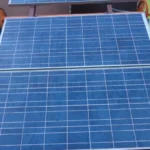
Rooftop Solar for Factories: Maximum kW You Can Install
Industrial rooftop solar guide: Understand KW capacity limits, installation guidelines, and best practices for factories and manufacturing units
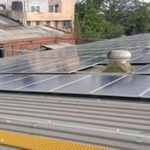
How Azimuth Angle Impacts Solar Panel Efficiency for Homes, Industries, and Commercial Buildings
Discover how solar panel azimuth impacts energy generation in homes, industries, and commercial buildings. Maximize efficiency with correct orientation.
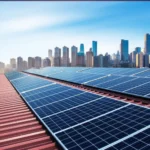
India and Japan Strengthen Renewable Energy Cooperation
India and Japan have initiated a partnership under the Asia Energy Transition Initiative (AETI) to support India’s clean energy transition. India has set an ambitious target of achieving net-zero by 2070, while Japan aims to achieve the same by 2050.

Sanctioned Load & Rooftop Solar: Everything You Need to Know
Learn why sanctioned load is crucial before rooftop solar installation. Understand its role, process, and impact on solar panel efficiency and subsidy eligibility.
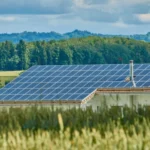
CAPEX or OPEX? How to Choose the Best Solar Ownership Model
Choosing between the CAPEX and OPEX models can greatly impact your solar savings and ownership benefits. This guide explains both models to help you make the right decision.
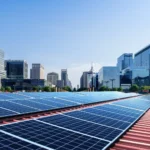
UP Government Incentive: Stamp Duty Exemption for Solar Land
Uttar Pradesh offers stamp duty exemption on land for solar projects, encouraging investment and growth in renewable energy.

Fire Hazard in a Solar Setup at Rice Mill, Kaithal – Case Study and Safety Insights
A recent fire incident at a rice mill in Kaithal highlights the critical importance of safety in solar installations. This case study analyzes the root causes, system faults, and preventive actions that can help industries avoid similar hazards in their solar setups.

SmartRoof Solar Associate Program – Easy Way to Earn with Solar Referrals
Join the SmartRoof Solar Associate Program. Refer solar leads, earn rewards, and support clean energy growth in your community.